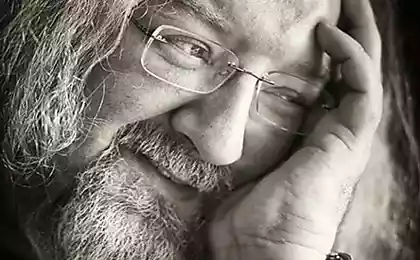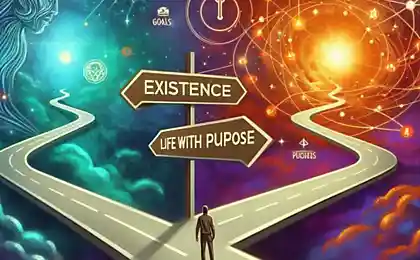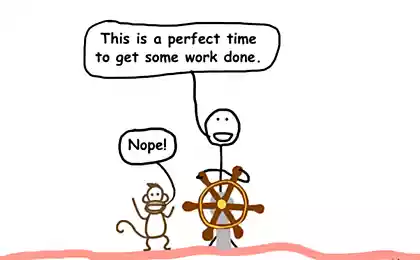112
10 Steps to Finding Your Cause and Favorite Cause

In today’s world, where the average person spends a third of their life at work, finding a calling becomes not a luxury, but a necessity. It’s not just about changing jobs or finding a better-paying job, it’s about a deep journey to yourself, the process of discovering what really fills your life with meaning and energy.
Why finding a calling is more than a career question
Research shows that people who work according to their inner motivations and values are not only more successful professionally, but also significantly happier in their personal lives. According to Gallup, only 13% of workers worldwide are truly engaged in their work, indicating the scale of the problem of mismatch between people and their activities.
A vocation is not something you find, but something you create through an understanding of yourself, your values, and your abilities.
Ten Steps to Opening Your Vocation
1 Take an inventory of your values
Start by identifying what is really important to you in life. Create a list of 10-15 values and rank them by importance. It can be family, creativity, justice, independence, stability or helping others.
- Use the “Wheel of Values” method to visualize your priorities
- Analyze the moments of greatest satisfaction in life
- Think about what upsets you the most in your current situation.
2 Explore your natural abilities
Each person has a unique set of talents and abilities. It is important to distinguish between acquired skills and natural gifts. The latter often manifest themselves in childhood and adolescence, when social conventions have not yet had time to suppress them.
Remember that it was easy at school or university without much effort. What compliments do you most often hear from others? What are your friends and colleagues asking you for?

3 Determine your type of motivation
Psychologists distinguish two main types of motivation: internal and external. Internal motivation is associated with pleasure from the process of activity itself, external with receiving remuneration or avoiding punishment.
A study by Edward Desey and Richard Ryan found that people with a predominance of intrinsic motivation are more creative, persistent and satisfied with their work. They identify three key elements of intrinsic motivation: autonomy, skill, and purpose.
4 Analyze your experience of the flow state
The flow state is a psychological state in which a person is completely immersed in activities, loses the sense of time and experiences deep satisfaction. Mihai Csikszentmihalyi, the author of the concept, argues that it is these moments that point to our true calling.
- Keep a state diary for a week
- Note the moments when time passes unnoticed
- Analyze the general characteristics of such situations
5 Explore your life roles and priorities
Each person plays many roles: professional, parent, friend, citizen, creator. It is important to understand how these roles interact with each other and which ones are most important to your sense of self.
Create a map of your life roles. Estimate how much time and energy you spend on each role, and compare it to how much you would like to spend perfectly.
6 Explore different areas of activity
Many people limit themselves to familiar professions, unaware of the existence of thousands of other opportunities. The modern labor market offers many new jobs that did not exist a decade ago.
- Study the directories of professions and new trends in the labor market
- Conduct information interviews with people of different professions
- Attend professional events and conferences
- Try volunteering in areas of interest

7 Experiment with small projects
Instead of a major shift, start with small experiments. This will allow you to get real experience without serious risks and financial losses.
Each experiment is not a failure or a success, but a source of valuable information about yourself and the world of possibilities.
8 Develop Self-Knowledge Skills
Regular reflection is the key to understanding yourself. This is not a one-off event, but an ongoing process that takes time and honesty with oneself.
- Keep a log of reflection.
- Practice meditation or mindfulness
- Get regular feedback from trusted people
- Study personality psychology and methods of self-knowledge
9 Create a plan for a gradual transition
A sudden change in activity rarely leads to success. A gradual transition is more effective, which preserves financial stability and reduces risks.
Develop a plan for 1-3 years, including intermediate goals, necessary skills, financial resources and a time frame. Consider backup options.
10 Build a Supporting Ecosystem
Surround yourself with people who support your aspirations and can offer constructive criticism. It can be mentors, like-minded people, professional communities or close friends.
- Find a mentor in an area of interest
- Join professional communities
- Create a support group of people with similar goals
- Invest in relationships with people who inspire you
Overcoming typical obstacles
On the way to finding a calling, many face typical obstacles: fear of change, financial constraints, social pressure and impostor syndrome. It is important to understand that these difficulties are a normal part of the growth process.
The fear of failure is often more destructive than failure itself. Research shows that people are more likely to regret what they didn’t do than what they tried and failed.
The Role of Calling in the Age of Technological Change
The modern world is characterized by rapid technological changes that are transforming the labor market. Many professions disappear, new ones appear. In such a situation, it is especially important to rely on your fundamental abilities and values, rather than on specific technical skills.
The future belongs to those who are able to adapt, learn and find meaning in their activities, regardless of external circumstances. Vocation becomes not just a career choice, but a way of navigating an uncertain world.
The search for a calling is not a finish line, but a continuous process of growth and self-discovery. Each stage of life can open up new facets of your personality and new opportunities for self-realization. The key is to be open to change and honest with yourself.
Glossary
A vocation is a deep inner belief that a particular activity or path in life is in line with your abilities, values, and gives you a sense of meaning and fulfillment.
The flow state is a psychological state of complete immersion in an activity in which a person loses the sense of time and experiences deep satisfaction from the process.
Intrinsic motivation is an urge to act that comes from the pleasure of the process itself, not from external rewards.
Reflection is the process of introspection, understanding one’s actions, thoughts, feelings and motives.
A mentor is an experienced mentor who shares knowledge and experience for the development of another person.
Mindfulness is the practice of conscious attention to the present moment without judgment.
Impostor syndrome is a psychological phenomenon in which a person doubts their achievements and fears being exposed as a “cheater”.
A support ecosystem is a network of people and resources that contribute to personal and professional development.
Remember, the path to calling is unique for each person. Do not compare your path to others, but focus on your own development and self-knowledge.
How to choose a laptop: comparison of characteristics and prices in 2025
3 traps that conscientious people fall into























